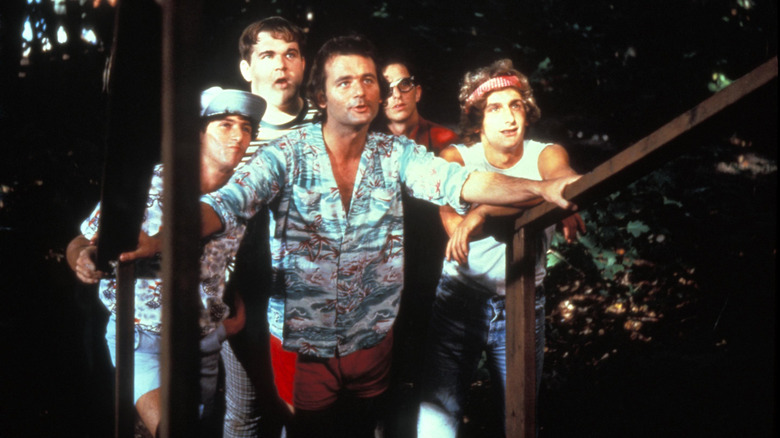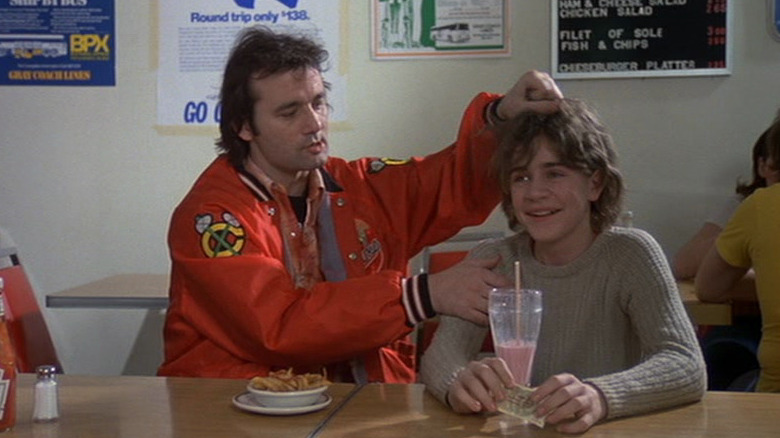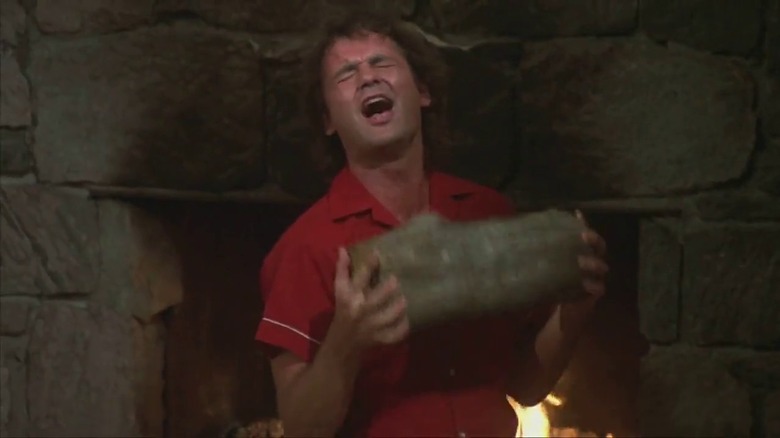There Was An Actual Mutiny On The Set Of Meatballs
1979's "Meatballs" is part of the wave of ribald, anarchic comedies to come out of the late '70s and early '80s in the wake of shows like "NBC's Saturday Night" and movies like "National Lampoon's Animal House." These comedies would often have an anarchic air about them, seen in their transgressive humor as well as their plot structure, which typically emphasized a "slobs vs. snobs" conflict. So it's no surprise that the sets of these productions would tend to get a little out of control.
However, things didn't just get a bit out of control on the set of "Meatballs" — director Ivan Reitman and company had to contend with an actual mutiny that broke out, one that resulted in damaged equipment and a throng of (literally) unhappy campers. Like most mutinies, Reitman and his crew had ample opportunity to see the storm clouds of discontent brewing, but couldn't quell them in time.
No one was quite ready for that summer
Reitman and producer Dan Goldberg found making "Meatballs" an uphill battle as they entered production, beginning with finding a location to shoot the movie. As Goldberg recalled in Vanity Fair's oral history of the film from 2017, he would "drive all around Canada, visiting various camps to see if they would let us shoot with the campers," an idea which most camps rejected given that their campers were "paying customers," of course.
Fortunately, Camp White Pine in Haliburton, Ontario said yes, allowing the production to take over their grounds in August of 1978. Reitman chose the setting and time of year deliberately to make sure "the campers were still there," both to lend a sense of reality to the movie as well as have the campers "serve as relatively inexpensive extras."
Yet Reitman's brilliant cost-saving measure ended up backfiring. As casting director Jack Blum (also the actor who played Spaz in the film) remembered, "Things got tense with the campers," with the kids being "very excited when [the cast and crew] arrived, but within a week, maybe less than that, they understood that this was not going to be fun for them." The teen campers were learning firsthand the boredom of being extras in a movie, and according to one of those campers, then-17-year-old Adam Kronick, "There was a lot of grumbling."
Location coordinator Kay Armatage recalled one particular incident that led to the mutiny, which was when Reitman asked for a scene featuring campers having a potato sack race. While the kids chosen to be in the race were made to wait for hours for the crew to prepare to film the scene, they found themselves "missing their swimming time and their naps and their crafts projects and whatever else," and "were starting to get seriously pissed off." After someone on the crew informed Armatage they wouldn't have time to get to the scene, she "blew [her] stack" in anger. The kids, however, had a different response.
The mutiny of Camp White Pine
As camper Kronick observed in retrospect, the descent of the "Meatballs" production on Camp White Pine was "certainly disruptive," and the prospect of making "a film in a summer camp where there are 400 campers who have other ideas of how they want to spend their summer" was a difficult one from the jump.
As evidence, the campers at White Pine eventually had enough, and they "started to mutiny and sabotage," as Armatage recalled. One of the incidents she observed involved the campers deflating the tires on one of the production's dollies, and the tires "weren't filled with air" but rather "hydrogen or something like that," meaning that fixing them "wasn't a simple matter of just pumping up the tires again."
Kronick plead the fifth when it came to recounting any other mutinous activities. "There were some stories I can't tell you," he teased. But it seems one of the mitigating factors in the tension between the "Meatballs" production and Camp White Pine was none other than star Bill Murray himself. Kronick recalled how "the staff was kind of excited to have a real 'Saturday Night Live' cast member in their midst," and how Kronick's father, who was on the camp's staff, would call a staff meeting with the promise of Murray's attendance, a meeting which Murray would then actually show up to (which is surprising, given that he nearly didn't show up to make the movie at all).
Ultimately, "Meatballs" was completed through Reitman and company's savvy and ability to perform triage on a wild and sometimes troubled production. While the making of the movie was no picnic, it was a largely fun experience for most of those involved, and it resulted in a hit film that furthered the careers of Reitman and Murray and influenced '80s comedy in general. Without the energy the campers' mutiny brought to the film, maybe "Meatballs" would've felt a little less delightfully zany.


